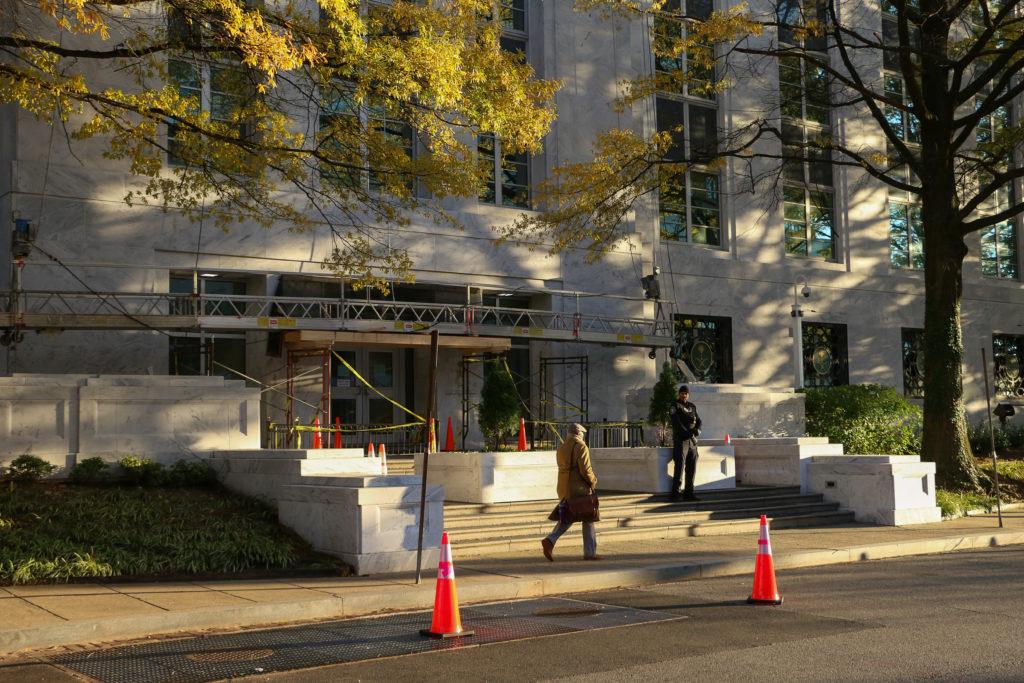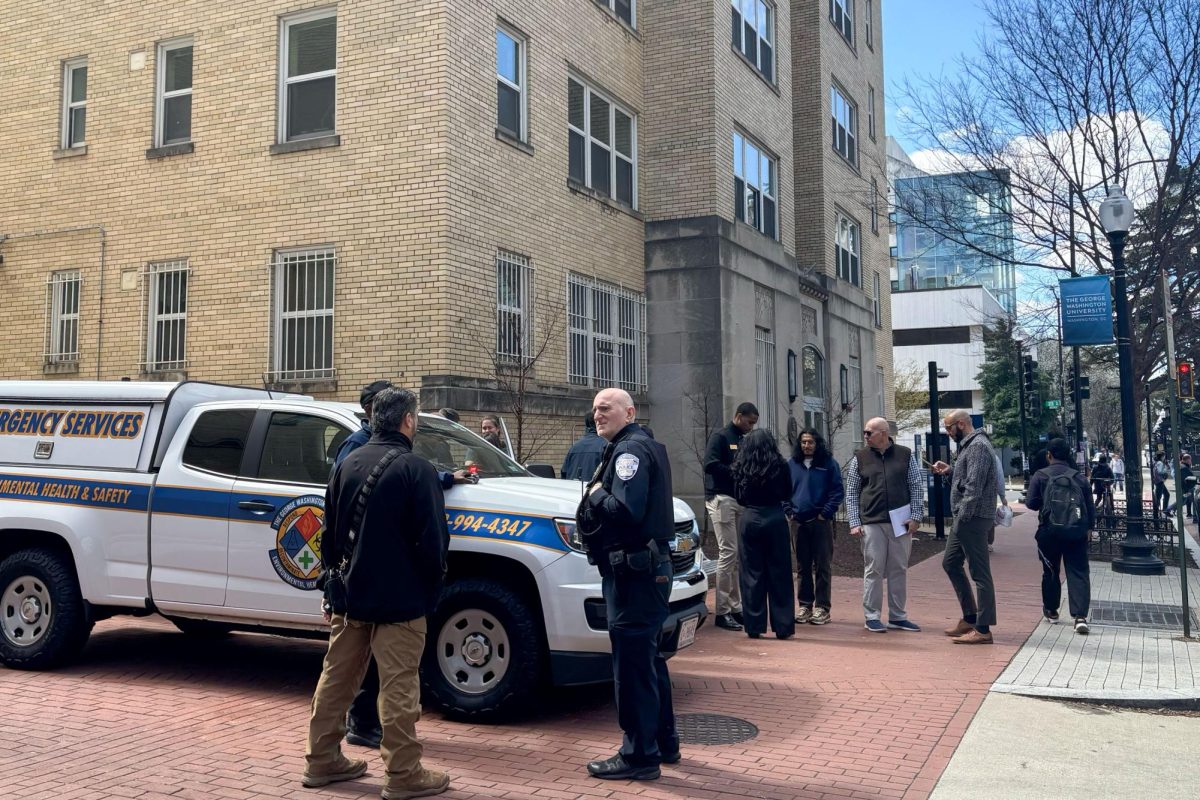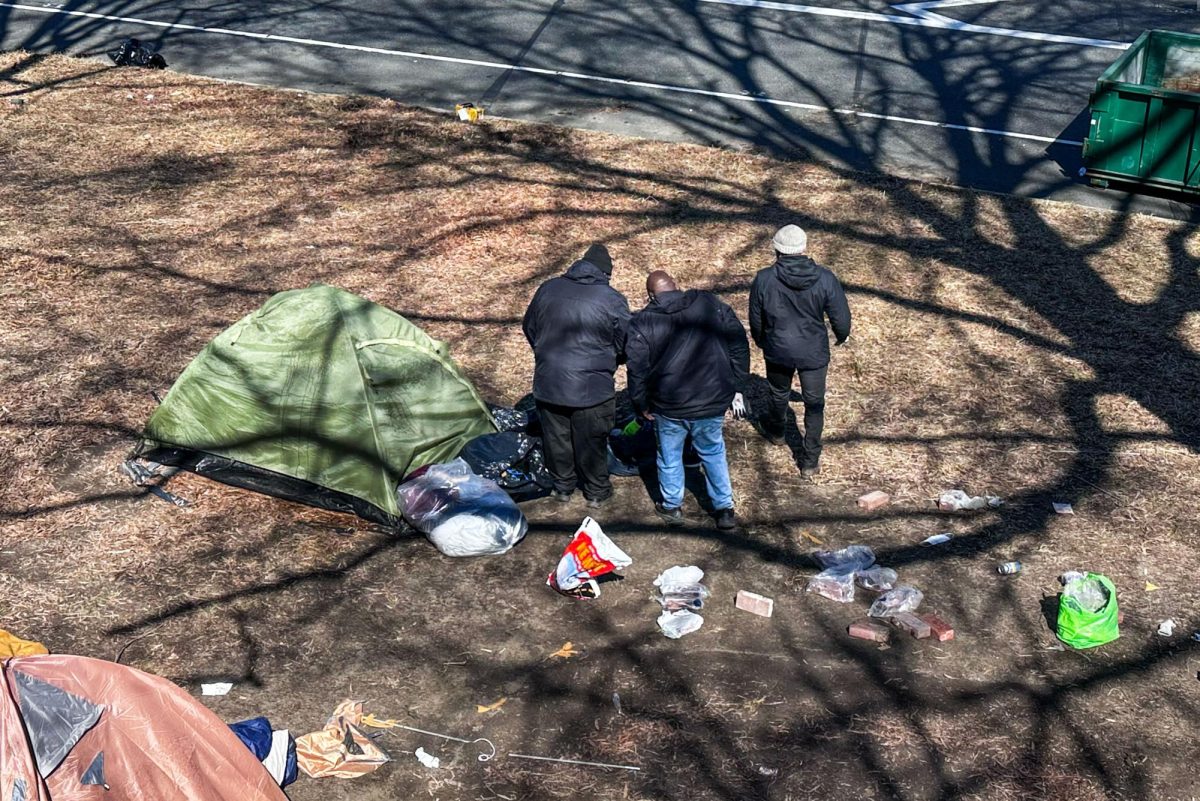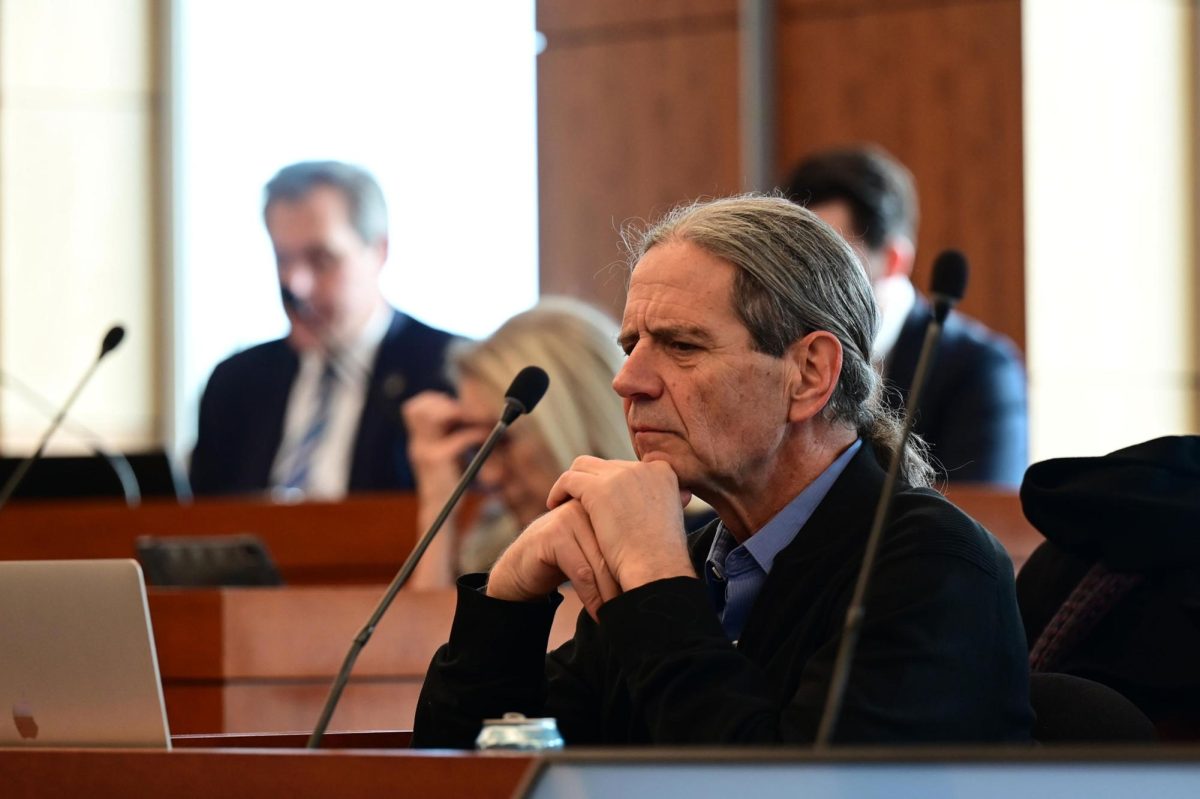Updated: Feb. 3, 2020 at 4:50 p.m.
A local governing body approved plans to rename two roads near campus after journalist Jamal Khashoggi and former Supreme Court Justice Ruth Bader Ginsburg during its first meeting of the year Wednesday.
The Foggy Bottom and West End Advisory Neighborhood Commission unanimously voted to sign off on two D.C. Council bills that Ward 2 Council member Brooke Pinto introduced this month to honor Khashoggi with a strip of New Hampshire Avenue and Ginsburg with a strip of Virginia Avenue. The meeting was a first for five of the seven commissioners who began their new terms this year.
Here are some of the meeting’s highlights:
Dedicating Khashoggi, Ginsburg ways
Barry Weise, Pinto’s legislative director, said the strip of New Hampshire Avenue in front of the Saudi Arabian Embassy will be dedicated to Khashoggi, and the span of Virginia Avenue between New Hampshire Avenue and Rock Creek and Potomac Parkway will be dedicated to Ginsburg under the bills’ provisions. He said Pinto introduced the bills to the Council earlier this month.
“The designation will further serve as a tribute to a fallen neighbor and as an expression of support by the residents of the District of Columbia for the indispensable values of free speech and a free and independent press,” a Council summary of Khashoggi’s bill states.
The ANC initiated commemorative efforts for Khashoggi in 2018 when commissioners passed a resolution to rename the roadway a month after the Washington Post columnist had been assassinated in Istanbul under orders from the Saudi prince.
Weise said the renaming process was delayed because of a D.C. law prohibiting the city from renaming streets after someone less than two years after their death. He added that the Council’s bill requests District officials to roll back the two-year buffer to name a street after Ginsburg, who died in September.
Relocating the hippo plaque
Following a unanimous vote, the hippo statue’s plaque will move from the ground in front of the statue to a newly-installed pedestal next to it. Adam Aaronson, the executive director for campus development, said one of the University’s donors requested the move, and officials also plan to round the corners and edges of the plaque to avoid safety hazards.
Commissioner Adam Friend pressed commissioners to consider the safety of the plaque, saying students frequent the statue while intoxicated on campus.
“It does appear to fit all of the standards of safety, which is the No. 1 thing we’re concerned about given I understand this hippo is a frequent target for students not entirely in their safest sense of mind,” he said.
The ANC also unanimously approved applications to install curb ramps and a “flashing beacon system” on the 2000 block of G Street and the same with a new crosswalk on the 700 block of 22nd Street.
Alumnus James Harnett, a former commissioner whose two-year term ended this winter, said he supports the resolution because students have faced traffic safety hazards at the listed locations in the face of oncoming traffic.
“This is a really important safety improvement to how folks walk around the neighborhood,” he said. “We’ve got a lot of students that are almost hit or actually hit by cars. Fairly often, people speed down these one-way, one-lane streets.”
Electing new officers
Commissioner Jeri Epstein, who’s served on the ANC since 2018, was unanimously elected to chair the commission, the body’s first female chair in five years.
The ANC also unanimously elected Commissioner Joel Causey as vice chair, Commissioner Yannik Omictin as secretary and Commissioner Trupti Patel as treasurer – the same position she held in her previous term. Causey and Omictin are newcomers to the ANC, and Patel has served since 2018.
Epstein said she plans to authorize commissioners to head each of their own neighborhood committees in collaboration with local residents. She said she will oversee infrastructure; Causey will head an economic committee focused on rebuilding local business; Patel and Omcitin will consolidate aid for housing, dining and clothing supplies; and Commissioner Donna Barbisch will tackle strategic planning, anchored by her expertise with the U.S. government in the field.
“Find what interests you and lead it,” Epstein said. “We want the neighborhood to be better and there’s so many ways we can do it.”
Filling a vacancy
The commission unanimously passed a resolution calling on the D.C. Board of Elections and Council to permit ANCs around D.C. to fill their vacancies during the public health emergency, a measure the BOE currently prohibits. The Foggy Bottom and West End ANC contains a single vacancy for the seat representing 2A08, located in the heart of campus, which students have occupied since the seat’s creation in 2013.
The seat lost its student representation after Harnett, the ANC’s former chair, concluded his term.
Omictin, a senior at GW, said city and neighborhood leaders must ensure potential candidates who might consider running for a vacancy have the information needed to know how to register to run for the seat. The resolution states ANCs in Wards 4, 5, 7 and 8 are also grappling with their own vacancies during the public health emergency.
“We need to make sure that we can fill our vacancies during the public health emergency,” he said. “That’s the real impetus behind this.”
Benjamin Kane contributed reporting.
This post has been updated to clarify the following:
This story has been updated to clarify that Harnett is no longer serving on the ANC because his term ended in January instead of him stepping down.








